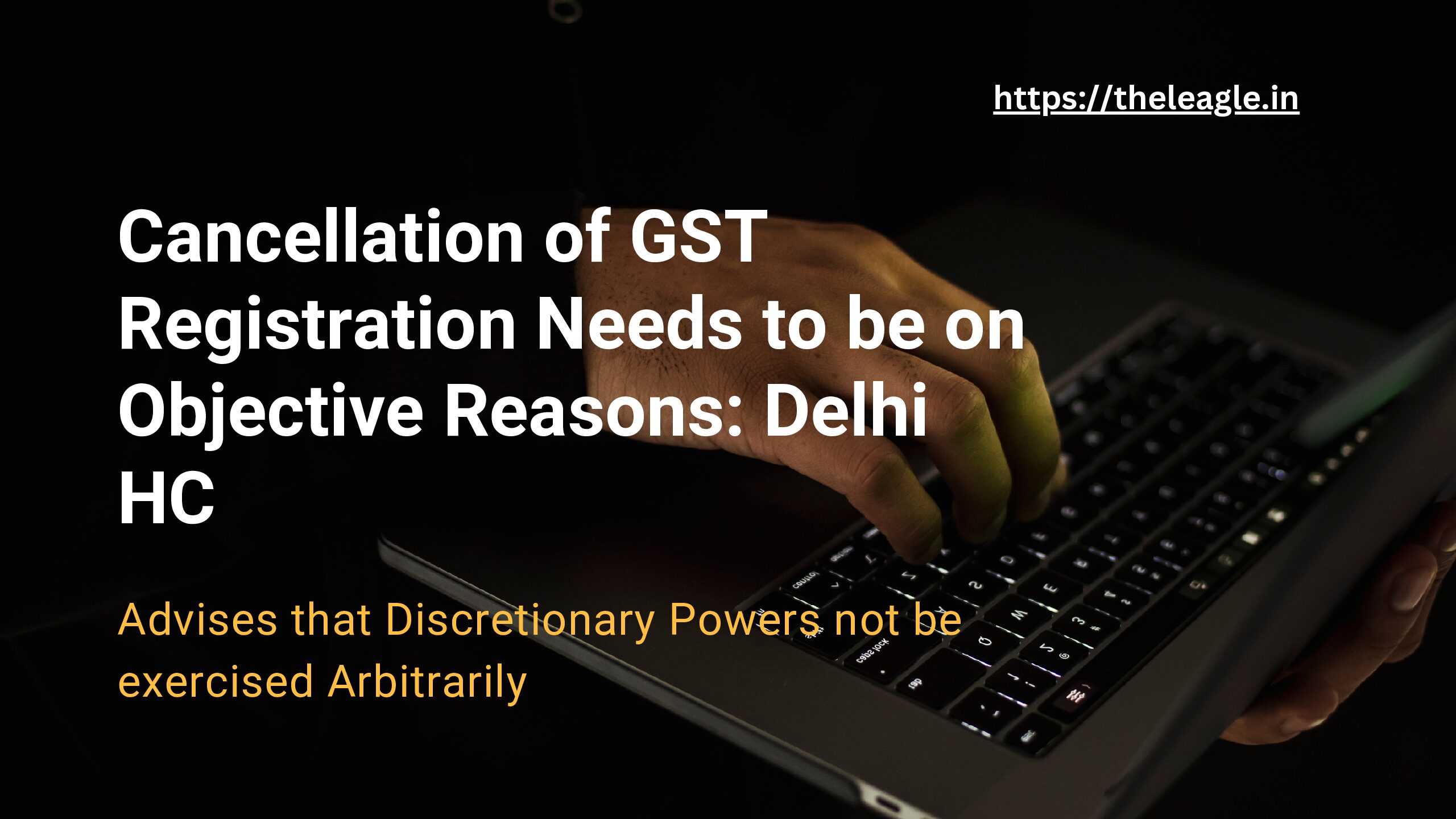Short Note
In a recent decision[1], the Delhi High Court held that the cancellation of an assessee’s registration under GST cannot be done in an arbitrary fashion and needs to be accompanied by objective reasons.
Facts
The assessee in the impugned case was carrying on the business as a sole proprietorship under the name ‘M/s P.S. Metal’ but closed business on 11.11.2019 on account of her ill health. The assessee filed an application on the same date for cancellation of her registration and her application was acknowledged, but not processed. Thereafter, on 12.021.2021, the proper officer issued a showcause notice to the petitioner proposing to cancel the assessee’s registration on the ground of non-filing of returns for a period of six months. The assessee was requested to appear before the proper officer failing which the case would be decided ex parte. The proper officer thereafter passed an ex parte order cancelling the petitioner’s registration, with the order stating that no reply was received to the showcause notice. However, the order did not mention any reasons for cancelling the registration even though the petitioner’s registration was cancelled with retrospective effect from 01.07.2017.
The assessee challenged the order on various grounds: while the showcause notice asked the assessee to appear for a personal hearing, it did not mention the date, time or venue for personal hearing, the order for cancellation of registration was passed in violation of principles of natural justice, and that the order does not contain any reasons for cancellation of the assessee’s registration.
Decision
The Delhi High Court accepted the assessee’s contention. The High Court referred to Section 29(2), CGST Act, 2017 which states that the proper may cancel the registration of a person from such date, including any retrospective date, as he may deem fit. The provision specifies various grounds under which the registration may be cancelled with retrospective effect including the registered person having contravened any of the provisions of the Act or not having filed returns for a financial year beyond three months from the due date, etc. The High Court observed that the discretion provided to the proper officer under Section 29(2) cannot be exercised arbitrarily and the decision to cancel registration from retrospective effect must be accompanied with some objective criteria. (para 6)
The Delhi High Court specifically noted the Revenue’s contention that cancellation of registration would have the effect of denying ITC to customers of assessee. The High Court observed that assuming that such a contention is true, it is incumbent on the proper officer to be ‘fully satisfied’ that the registration needs to be cancelled, and that too with retrospective effect. Though in the instant case no reason for cancellation of registration was provided, let alone a reason for cancellation of registration with retrospective effect.
Accordingly, the Delhi High Court granted the assessee’s request that her registration be cancelled w.e.f. 11.11.2019 since she ceased her business from the said date.
Conclusion
The Delhi High Court’s succinct decision in the impugned case throws light on certain practices that the Revenue Department sometimes tends to adopt: issuance of a showcause notice without providing adequate details to the person such as the date and venue for hearing on the notice and the exercise of discretion without providing adequate reasons. The officers have been granted wide and extensive powers under the GST laws to assist in implementation of GST laws and it is necessary that the same are exercised prudently.
[1] Pratima Tyagi v Commissioner of GST & Anr 2023: DHC: 9025-DB.
